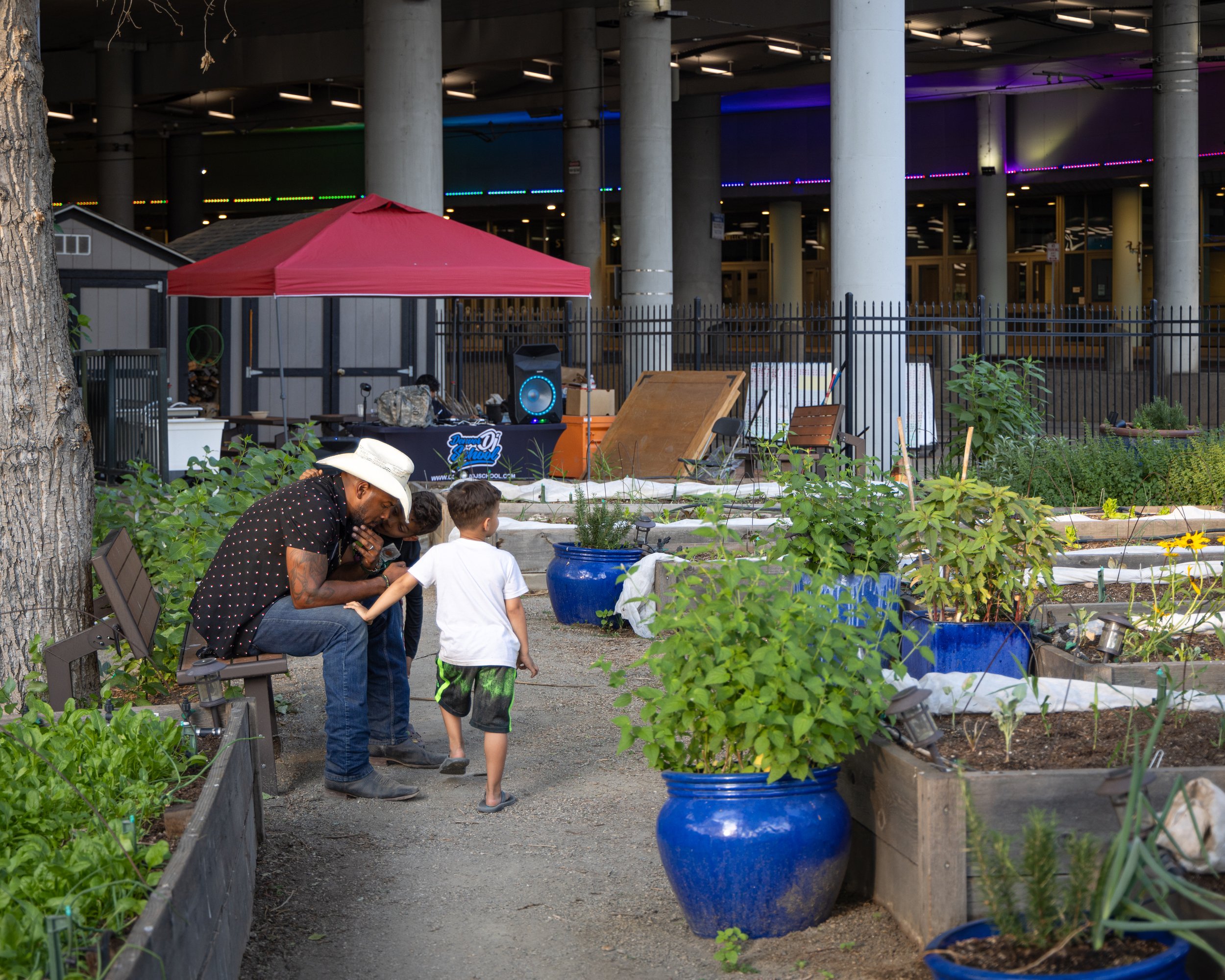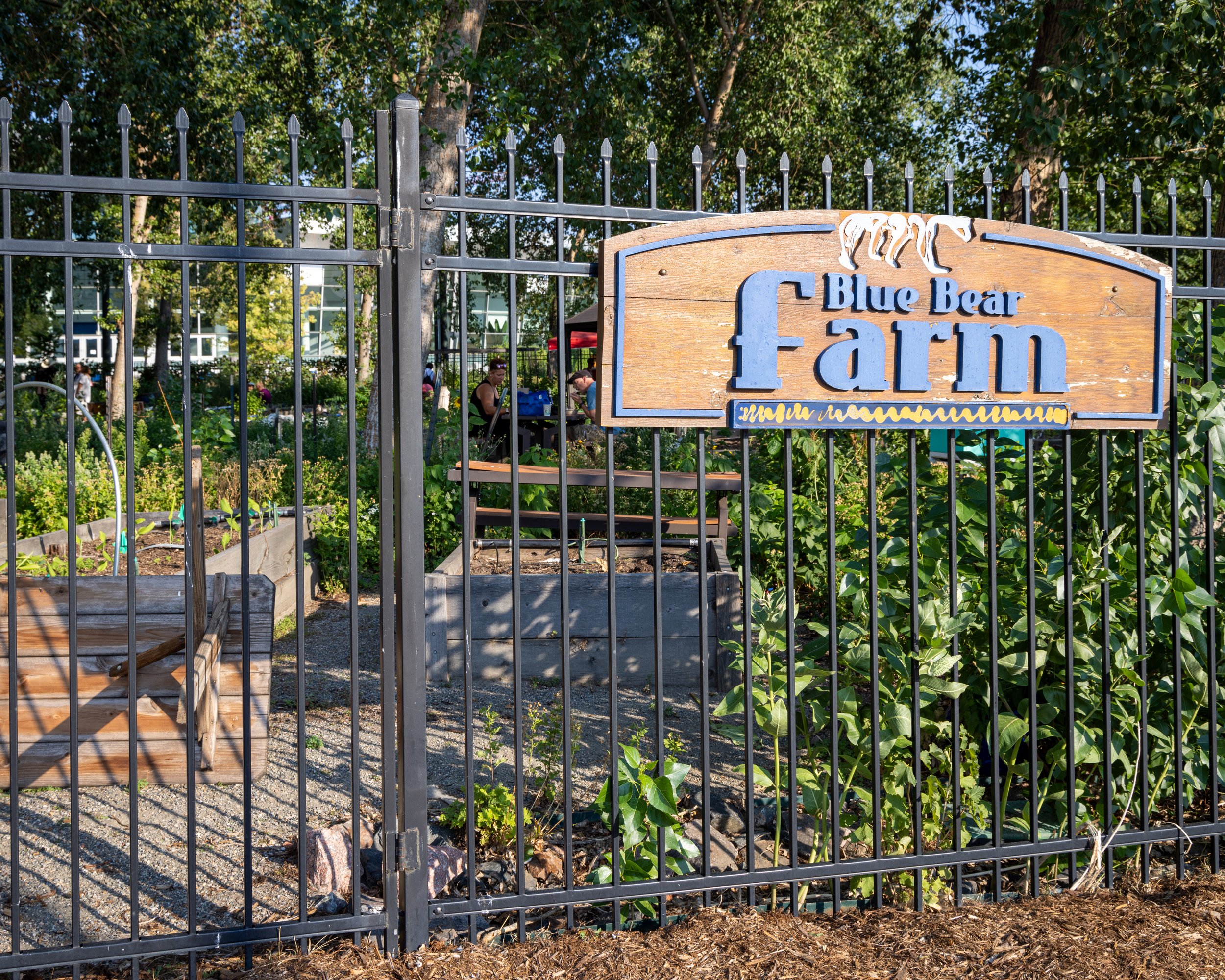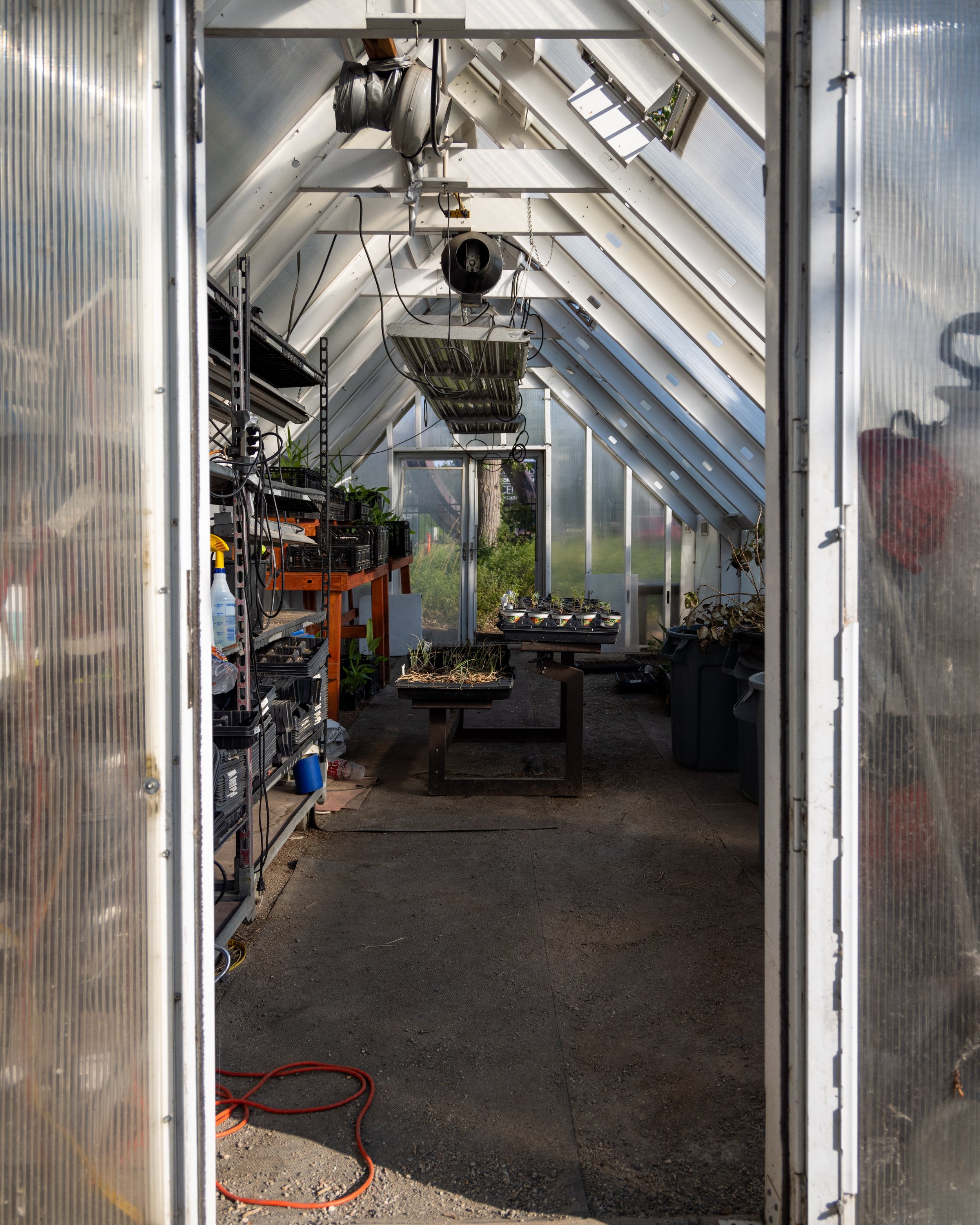Serving up food justice: Beverly Grant and Mo Betta Green embody the spirit of community
Beverly Grant Photo: Yvens Alex Saintil
Story and Photos by Yvens Alex Saintil
This is what community looks like!
According to Feeding America, an estimated 44 million people in the United States — which is about twice the population of New York — lack access to healthy and affordable food options. In 2023, the Colorado Health Institute estimated food insecurity affects one in 10 people throughout the state. Those who are disproportionately impacted by food insecurity include lower-income households, rural residents, young adults, Black/African American and Hispanic/Latinx communities, and women. One resident of Denver’s Five Points neighborhood took the initiative to address this situation over a decade ago.
In 2010, Beverly Grant, a Denver native and social justice advocate, created Mo Betta Green an urban farming and community-driven organization based in Denver, Colo. Since then, Grant has been feeding, educating, and holding space in the community. Upon meeting Grant and learning about all she has done for her neighbors, I dubbed her “The Matriarch of Five Points.”
Grant founded Mo Betta Green with the mission to address food insecurity and promote healthy eating habits while focusing on providing fresh, organic produce to underserved communities in Denver’s historic Five Points and Northeast Park Hill neighborhoods. The organization operates urban farms and community gardens within the city — transforming vacant lots and unused spaces into productive agricultural areas. These farms grow a variety of fruits, vegetables, and herbs, ensuring that residents have access to fresh, locally-grown produce.
Mo Better Green also hosts farmers markets, providing a platform for local farmers and vendors to sell their products directly to the community. These markets, which take place every Saturday, June 22 to October 12, from 10 a.m. to 2 p.m. inside the Charles E. Cousins Plaza, not only offers fresh produce but also creates opportunities for local entrepreneurs and small businesses to thrive. The organization emphasizes the importance of community involvement and education. They partner with local high schools and give young people an opportunity to use farming to work, learn, and uplift their community.
Recently, I spent a few hours at Mo Betta Green’s farmers market in the Five Points neighborhood. Yes, it was uncharacteristically hot for Denver, but the fresh beet juice made all the difference for me!
On this hot day, in addition to Grant, who remains intimately involved in the organization’s operations, there were recent high school and college graduates who were helping out at the Mo Betta Green tents. Among the folks I spoke to were three sisters Eveline, Yoseline, and Leslie Rivera-Rivera — who aspire to become attorneys with the specific intent to help their community pro bono. The sisters are involved with Liincoln Hills Cares, an organization that strives to increase equity in accessing outdoor resources.
Other young adults I spoke with were J’mari, Clayton, R., Jamaurey, Clayton, S., and their supervisor Trey, who was working and operating the juice bar. They were happy to chat about their contributions to the market. Madison, Dezzy, and Ray were also kind enough to have our conversation out of the hot sun and under the shelter of their tent.
One vendor I met, Ashanta, told me it was his first time vending his organic soap with Mo Betta Green. Ashanta said he has known Beverly for a long time, and like everyone that I spoke to before him, he is thankful for having an opportunity to be in this space and believes in the power of community. I spoke with and exchanged contacts with Lizzie and John under their tent, which resembled an African boutique — in the middle of Five Points. The market also included a live DJ spinning several hip-hop classics.
Mo Better Green is a shining example of how urban farming and community activism can come together to create sustainable change and make convincing impacts on people’s lives. By providing fresh produce, educating residents, and fostering a sense of community, they play a crucial role in improving the overall well-being of Denver’s underserved populations. Their efforts contribute to reducing food insecurity, promoting healthy eating habits, and enhancing the quality of life for many individuals and families in the area.
I thanked Grant for her contributions to the Black community and asked how I could give back. She told me about her Community Farm Dinners series, where a local chef is highlighted along with music, delicious food, and community resources. I assured her I would be there to support them.
After I arrived at the community dinner, I walked around the newly acquired Blue Bear Farm, named after the iconic “I See What You Mean” blue bear sculpture that peers into the Denver Convention Center’s windows. I was amazed at the 5,000-square-foot farm. This was Mo Betta Green’s first year operating this farm, in addition to their farms in the Five Points, Cole, and Northeast Park Hill neighborhoods. Produce grown at Blue Bear Farm is supplied to local restaurants, markets, and community organizations. This helps to support the local economy and provides Denver residents with access to fresh, nutritious food.
Metro Caring, an anti-hunger organization that works with communities to meet people’s immediate need for nutritious and culturally relevant food is one of the many local organizations, schools, and businesses Mo Betta Green collaborates with. I spoke with Emily Settlecowski from Metro Caring about the need for American society to shift the narrative. As we discussed, instead of asking, “What we can do about food insecurity?” the question should be, “Why do we have food insecurity to begin with?”
Mo Better Green’s partnerships help support various programs, increase community engagement, and promote a holistic approach to food security and health. At the heart of Mo Better Green’s mission is the concept of food justice. They advocate for equitable access to nutritious food, particularly in neighborhoods that are often classified as food deserts, or areas with limited access to affordable and nutritious food.
Mo Betta Green’s work has helped to bridge the gap in food accessibility and ensure that all community members can enjoy the benefits of fresh, healthy produce. Their dedication to food justice and community empowerment continues to make a significant difference in Denver.
After everything she has done for the community, it’s time we give the “Matriarch of Five Points,” Beverly Grant, her flowers. Or maybe even, the Key to the City.










